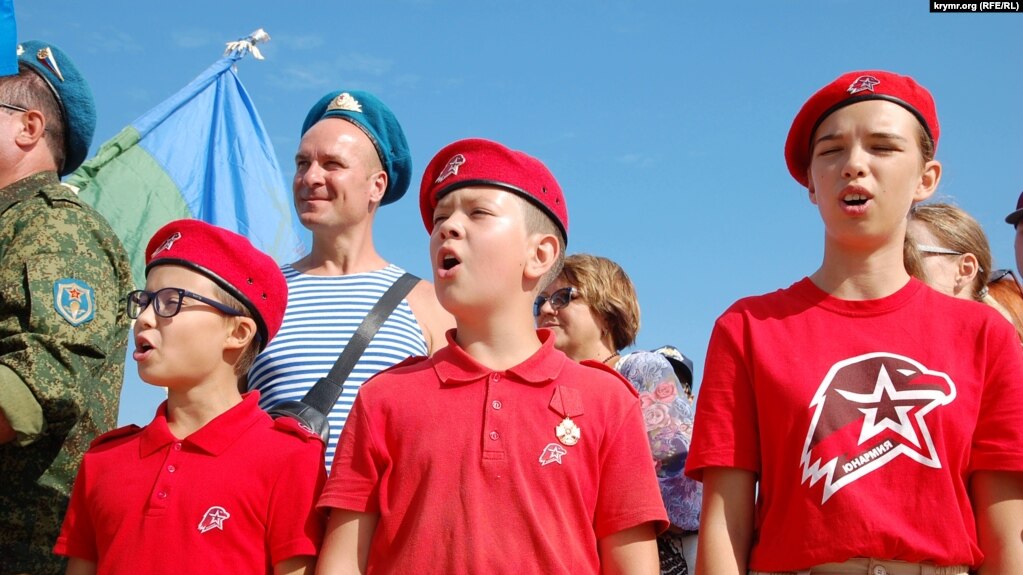Why does Putin want children from occupied territories, and how will deportation impact an entire generation of Ukrainians? An interview with Yekaterina Rashevskaya, lawyer at the Regiona...
It seems that the text you provided is incomplete and only contains a fragment of HTML markup. Please provide the full text you would like me to rephrase, and I'll be happy to assist you while preserving the HTML structure.
https://ua.news/ru/ukraine/zachem-putynu-dety-s-okkupyrovannyh-terrytoryj-y-kak-deportatsyya-povlyyaet-na-tseloe-pokolenye-ukrayntsev-yntervyu-ekateryny-rashevskoj-yurysta-regyonalnogo-tsentra-prav-cheloveka2024-12-04 10:46:23
-->
You mentioned that there is no unified algorithm for the return of Ukrainian children, as Russia manipulates the process by presenting different demands each time. In such circumstances, can we hope for the return of more children?
Kateryna Rashevska: Currently, this is an individual effort, a struggle for each child. Unless we find additional solutions to address the issues I mentioned, the number of returned children will remain low.
We value every child, but there are certain objective circumstances, particularly the age of the children. For instance, children in the Kherson Regional Children's Home could have been between one and four years old. There were very young children who have since grown up. They are no longer in the institution that is referred to in Russia as the “Kherson Regional Children's Home.”
And we do not know where they have been taken, whether they were distributed to families, where they live, and who is raising them. What are they being told? These are very young children; they may not even know their names. They could have been given different names. There are cases where time works against us.
Similarly, those who were 15 or 14 at the time of their removal, not to mention those who are now 16-17, are already adults. They have been issued Russian passports. They now have obligations, including compulsory military service, which they must fulfill. Even if they are not immediately mobilized to the front, they are still required to serve.
 3
3
According to our experience (our organization has also dealt for a long time with the issue of forced mobilization in the occupied territory of the Crimean Peninsula), a year of military service breaks individuals down.
If you do not voluntarily sign a contract, they will present you with a myriad of reasons, including threats of physical force and moral or immoral pressure. They will do everything to make you agree to the contract. You will serve - and that’s it. The goal of the Russian Federation is achieved.
Are Russians still deporting Ukrainian children now? Have the scenarios for deportation changed in any way?
Kateryna Rashevska: Regarding the current situation, we must understand that their favorite narrative about
UA.News continues its series of interviews regarding the repatriation of Ukrainian children from deportation. We present the third part of the interview with Kateryna Rashevska, a lawyer at the public organization “Regional Center for Human Rights.”
The discussion addresses the network of Putin's camps aimed at re-education of Ukrainian children, the connection between deportation and Russia's demographic program and military mobilization until 2030, as well as the implications for Ukraine's defense and economy in the coming years. Rashevska also explains the concept of “cognitive occupation” and the lasting impact of deportation and war on the next generation of Ukrainians.
You mentioned that there is no unified algorithm for the return of Ukrainian children, as Russia manipulates the process by presenting different demands each time. In such circumstances, can we hope for the return of more children?
Kateryna Rashevska: Currently, this is an individual effort, a struggle for each child. Unless we find additional solutions to address the issues I mentioned, the number of returned children will remain low.
We value every child, but there are certain objective circumstances, particularly the age of the children. For instance, children in the Kherson Regional Children's Home could have been between one and four years old. There were very young children who have since grown up. They are no longer in the institution that is referred to in Russia as the “Kherson Regional Children's Home.”
And we do not know where they have been taken, whether they were distributed to families, where they live, and who is raising them. What are they being told? These are very young children; they may not even know their names. They could have been given different names. There are cases where time works against us.
Similarly, those who were 15 or 14 at the time of their removal, not to mention those who are now 16-17, are already adults. They have been issued Russian passports. They now have obligations, including compulsory military service, which they must fulfill. Even if they are not immediately mobilized to the front, they are still required to serve.
 3
3According to our experience (our organization has also dealt for a long time with the issue of forced mobilization in the occupied territory of the Crimean Peninsula), a year of military service breaks individuals down.
If you do not voluntarily sign a contract, they will present you with a myriad of reasons, including threats of physical force and moral or immoral pressure. They will do everything to make you agree to the contract. You will serve - and that’s it. The goal of the Russian Federation is achieved.
Are Russians still deporting Ukrainian children now? Have the scenarios for deportation changed in any way?
Kateryna Rashevska: Regarding the current situation, we must understand that their favorite narrative about